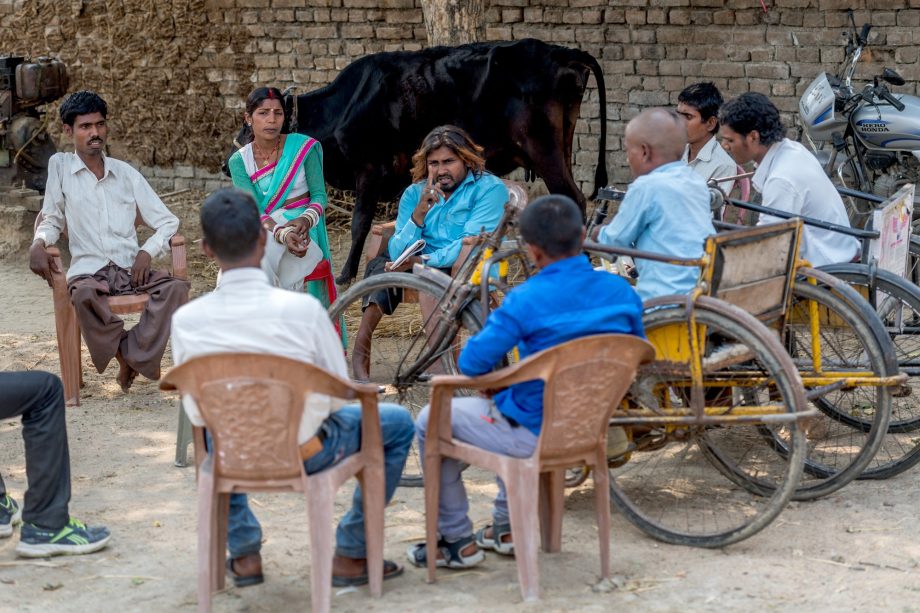What are OPDs
Organisations of Persons with Disabilities (OPDs) represent the interests of their members with disabilities and have the mandate to advocate for the realisation of their human rights and lobby for the consideration of their interests. Typically, OPDs are led, directed and governed by persons with disabilities themselves.

OPDs can exist on local, national, regional, and international levels. The size, structure, capacities, and resources of OPDs can differ considerably. Sometimes umbrella organisations represent the interests of several OPDs.
Some OPDs may be specialised to advocate for specific groups among persons with disabilities (e.g., women and girls with disabilities, children with disabilities, etc.) or for specific impairment groups (persons with visual impairments, psychosocial impairments, hearing impairments, etc.), others may focus on certain topics (e.g., education, health, political participation, gender, etc.).
The following are some characteristics that OPDs ideally have:
- OPDs are led by persons with disabilities;
- their main aim is to promote and defend the rights of persons with disabilities.
- they may represent one or more disabilities or can be open to members of all groups of persons with disabilities;
- they represent the diversity and intersectionality of disability;
- they can be local, national, regional or international in scope;
- they are not affiliated with any political party and independent of public authorities and other non-governmental organisations;
- they can operate as individual organisations, coalitions or cross-disability organisations of persons with disabilities, seeking to provide a collaborative and coordinated voice for persons with disabilities.
Organisations of persons with disabilities need to be distinguished from organisations for persons with disabilities like CBM.
Find out more about different types of OPDs
There are different types of Organisations of Persons with Disabilities (OPDs) depending on their membership, focus area and way of working.
Umbrella organisations
OPD umbrella organisations are coalitions of representative organisations of persons with disabilities. Different organisations of persons with disabilities may be members of an umbrella organisation representing their diversity. A diverse membership consisting of different OPDs allows them to represent the interests of people with disabilities in all their diversity. They are democratic and open in their functioning; they speak only on behalf of their member organisations and solely on matters of mutual interest that are collectively decided upon. The existence of umbrella organisations in a country should not hinder individuals or organisations of persons with disabilities from participating in consultations themselves.
Cross-disability organisations
Cross-disability organisations are composed of persons representing all or a wide diversity of impairments. They exist at local, national, regional and/or international levels.
Traditionally, several cross-disability organisations have been dominated by people with certain disabilities. Therefore, it is important to be aware of the disability groups they represent and invite underrepresented groups to consultations if necessary.
Self-advocacy organisations
Self-advocacy organisations are often loosely and locally formed networks and platforms. They advocate for the rights of persons with disabilities, especially persons with intellectual disabilities and those who are denied their legal capacity, institutionalised, and denied the right to vote. Self-advocacy organisations provide appropriate support to enable their members to express their opinions and are crucial for their political participation as well as their involvement, in decision-making, monitoring and implementation processes. In many countries, self-advocacy organisations are refused legal status because of incapacity laws that deny the legal capacity of their members. Irrespective of their legal status, they must be a part of consultations.
Often self-advocacy networks function within family organisations and operate under their registration. Hybrid organisations that represent self-advocates and family members of persons with disabilities are common.
Organisations including family members of persons with disabilities
Organisations including family members of persons with disabilities are formed when persons with intellectual disabilities, and children with disabilities want to be supported by their families in exercising their right to participation, while remaining in full control. They are OPDs that promote and secure interests and help individuals to gain autonomy and participate actively. The role of parents, relatives and caregivers in such organisations is to assist and support the empowerment of persons with disabilities to have a voice and take control of their own lives. Through supported decision-making, persons with disabilities are ensured their rights and enabled to express their views. These organisations should be a part of consultation, decision-making, and monitoring processes.
Organisations of women and girls with disabilities
Organisations of women and girls with disabilities represent women and girls with disabilities as a diverse group. They include all types of impairments and represent the intersectionality these women and girls experience. The participation of women and girls with disabilities is indispensable in consultations to bring out issues that exclusively or disproportionately affect women and girls with disabilities and issues related to gender equality in general.
Organisations and initiatives of children and young persons with disabilities
Organisations and initiatives of children and young persons with disabilities work to ensure the participation of children, their right to be heard and to enable them to express and associate with others. They may be formally or informally organised, with adults holding the responsibility of supporting them by promoting an environment that allows them to establish and act.
Reference
- UN Committee on the Rights of Persons with Disabilities (2018): General Comment No 7 on the participation of persons with disabilities, including children with disabilities, through their representative organisations, in the implementation and monitoring of the Convention, CRPD/C/GC7.